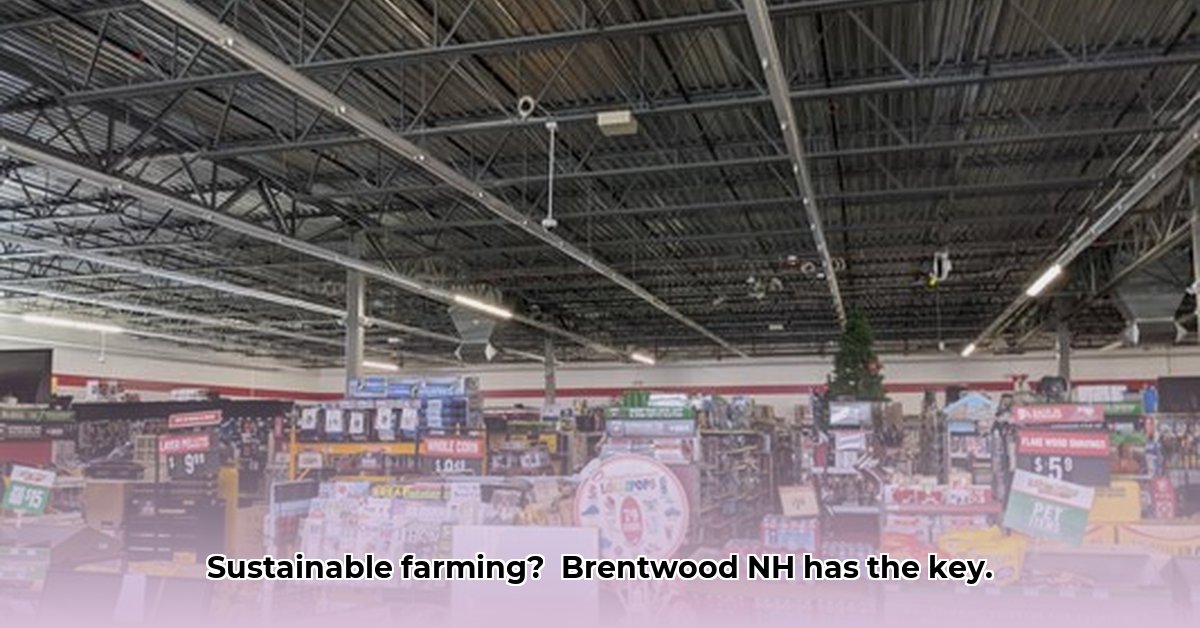
Tractor Supply Brentwood NH: Assessing its Role in Sustainable Agriculture
Tractor Supply Company (TSC) in Brentwood, New Hampshire, serves a vital role in the local agricultural community. This article examines its contribution to sustainable farming practices, highlighting both its strengths and limitations, and proposing actionable steps for all stakeholders to enhance environmental responsibility. The effectiveness of TSC's contribution hinges on transparency and collaborative efforts towards more sustainable agricultural methods. This investigation includes analysis of product offerings, supply chain transparency, and recommendations for improved sustainability. For similar analysis in another location, check out this report on a Vermont TSC.
TSC Brentwood: Product Offerings and Sustainable Practices
TSC Brentwood offers a range of products that can support sustainable farming. Organic seeds promote biodiversity and reduce pesticide reliance. Fencing materials facilitate rotational grazing, improving pasture health. Water-efficient irrigation tools help conserve a precious resource. However, the mere availability of these products doesn't automatically equate to a comprehensive commitment to sustainable agriculture. How effective are these products in promoting true sustainability, and are there more opportunities for improvement?
Limitations and Challenges in TSC's Sustainability Approach
While TSC provides products useful for sustainable farming, its overall commitment to sustainability requires further scrutiny. A significant gap lies in the lack of transparency surrounding its supply chain, sourcing practices, and environmental impact. The absence of a comprehensive sustainability report detailing sourcing, manufacturing processes and transportation emissions hinders a complete evaluation. This lack of readily-available information prevents consumers from making fully-informed purchasing decisions. Is this lack of transparency hindering TSC's ability to truly contribute to sustainable agriculture?
Actionable Recommendations for Sustainable Improvement
To enhance sustainable agricultural practices, concerted action from various stakeholders is crucial. The following recommendations outline short-term and long-term actions for TSC, farmers, consumers, and government agencies:
1. Tractor Supply Company (TSC):
- Short-Term (1 Year): Conduct a comprehensive supply chain audit, evaluating environmental impacts at each stage. Publish a transparent sustainability report detailing findings, including both successes and shortcomings, and outlining specific, measurable goals for improvement.
- Long-Term (3-5 Years): Implement a comprehensive sustainability strategy with quantified targets for reducing its environmental footprint. Expand its product line to include a wider array of certified organic and biodynamic products. Prioritize sustainable packaging options.
2. Farmers (Large and Small Scale):
- Short-Term: Utilize TSC products responsibly, integrating them with established sustainable practices like crop rotation, composting, and water-harvesting techniques.
- Long-Term: Advocate for a broader selection of sustainable products within TSC stores. Invest in training and resources to stay updated on cutting-edge environmentally-friendly farming methods.
3. Consumers:
- Short-Term: Prioritize purchasing locally sourced products whenever possible, aligning spending decisions with their sustainability values.
- Long-Term: Demand greater transparency in supply chains from businesses like TSC. Support policies that promote sustainable agriculture and eco-conscious business practices.
4. Government Agencies:
- Short-Term: Offer financial incentives and subsidies to encourage the wider adoption of sustainable farming practices.
- Long-Term: Strengthen regulations to mandate environmentally sound sourcing and promote sustainable agricultural techniques.
Conclusion: Forging a Sustainable Agricultural Future
Sustainable agriculture requires collaboration. TSC, farmers, consumers, and government agencies each play a vital part in building a more resilient and environmentally responsible food system. By actively working together, sharing knowledge, and advocating for change, we can transform the potential for positive change into a tangible reality, ensuring both environmental preservation and the long-term success of New Hampshire's agricultural sector. The future of sustainable agriculture depends on shared responsibility and informed action.